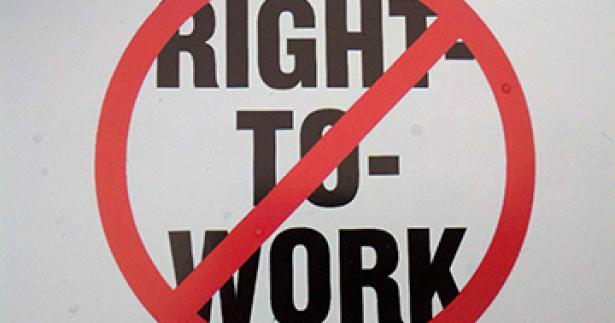As of Feb. 13, Michigan’s deceptively named “right-to-work” laws officially became a thing of the past, marking the first time in nearly 60 years a state has repealed one of these laws. This is a victory for workers, especially workers of color.
We already know that “right-to-work” is a misnomer; rather than creating opportunities for workers, as the name falsely implies, these laws stifle workers by making it harder to collectively bargain for their wages, benefits and working conditions. In fact, workers in states without right-to-work or similar anti-worker laws face 37% less risk of dying on the job and make $8,989 (15.2%) more annually. What’s worse, these laws were really created in the Jim Crow South with the purpose of perpetuating the oppression of workers of color.
Vance Muse — an oil lobbyist and outspoken racist and antisemite — was the driving force behind the spread of “right-to-work” laws. You don’t need to take my word for it; in 1936, he testified in front of a U.S. Senate committee that he was “for white supremacy.” Muse warned via campaign literature that white and Black workers would have to call each other “‘brother’ or lose their jobs.
What Muse and others realized was that racism in the workplace makes it harder for workers to come together in solidarity. By dividing workers along racial lines, CEOs and special interests could succeed in maximizing corporate profits by preventing workers, now infighting over race, from standing together to fight for better working conditions.
“Right-to-work” was part of a broad strategy to weaken organizing power, particularly for Black workers who, in the 1950s, were rapidly growing a nationwide movement to fight for civil rights and labor rights. So it’s not surprising that one of the most outspoken critics of “right-to-work” laws was none other than the Reverend Dr. Martin Luther King Jr. In 1961, he called “right-to-work” “a law to rob us of our civil rights and job rights” intended “to destroy labor unions and the freedom of collective bargaining by which unions have improved wages and working conditions of everyone. … Wherever these laws have been passed, wages are lower, job opportunities are fewer and there are no civil rights.”
Daryl Newman is president of the Detroit AFL-CIO and secretary-treasurer of the Michigan AFL-CIO.


Spread the word